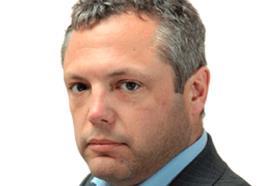Men are the Cinderellas of the diversity, wellbeing and inclusion ‘industry’. We are not a minority (and certainly not in the upper reaches of business, civil society and the law). We are not oppressed solely because we are men. And, with extremely rare exceptions, we do not suffer unlawful discrimination and ill treatment in the workplace purely as a consequence of our maleness.

This explains why International Men’s Day (IMD) is still not taken entirely seriously. ‘Men need a special day to be recognised? Really? We should have a special day to celebrate their achievements? Isn’t every day used to do that?’
This remains a common refrain, even among otherwise sensible commentators.
In fact, this prejudice is as antediluvian as the many others that D&I gatekeepers rightly strive to combat. It serves to reinforce hoary gender stereotypes which harm everyone.
This is usefully highlighted by charity LawCare’s study of the mental health experiences of men in law, undertaken to coincide with this year’s IMD (22 November). As Nick Bloy, founder of consultancy Wellbeing Republic, told a focus group convened by LawCare: ‘Men feel a palpable expectation that they should be strong, not display vulnerability, and be able to shoulder the burden of personal problems themselves without recourse to others.
‘Working as a lawyer adds additional pressure to this sense of needing to appear perfect to the outside world. Generally, men often don’t have the emotional vocabulary to understand or express their experiences effectively and a lack of male role models in positions of responsibility in law, adds to that pressure to remain stoic.’
What this ‘expectation’ further entrenches is the macho, presenteeist, on call 24/7, billable hours culture which we are encouraged to believe is on the way out. But it’s not on the way out, is it? Does anyone working at a big City law firm – and especially as a junior – actually believe that?
LawCare is right to stress the need for a ‘joined up and concerted’ effort across the profession to counter factors that adversely affect the mental health of all lawyers. As the charity intimates, this is one area where we need more male trailblazers to help both women and men.































No comments yet